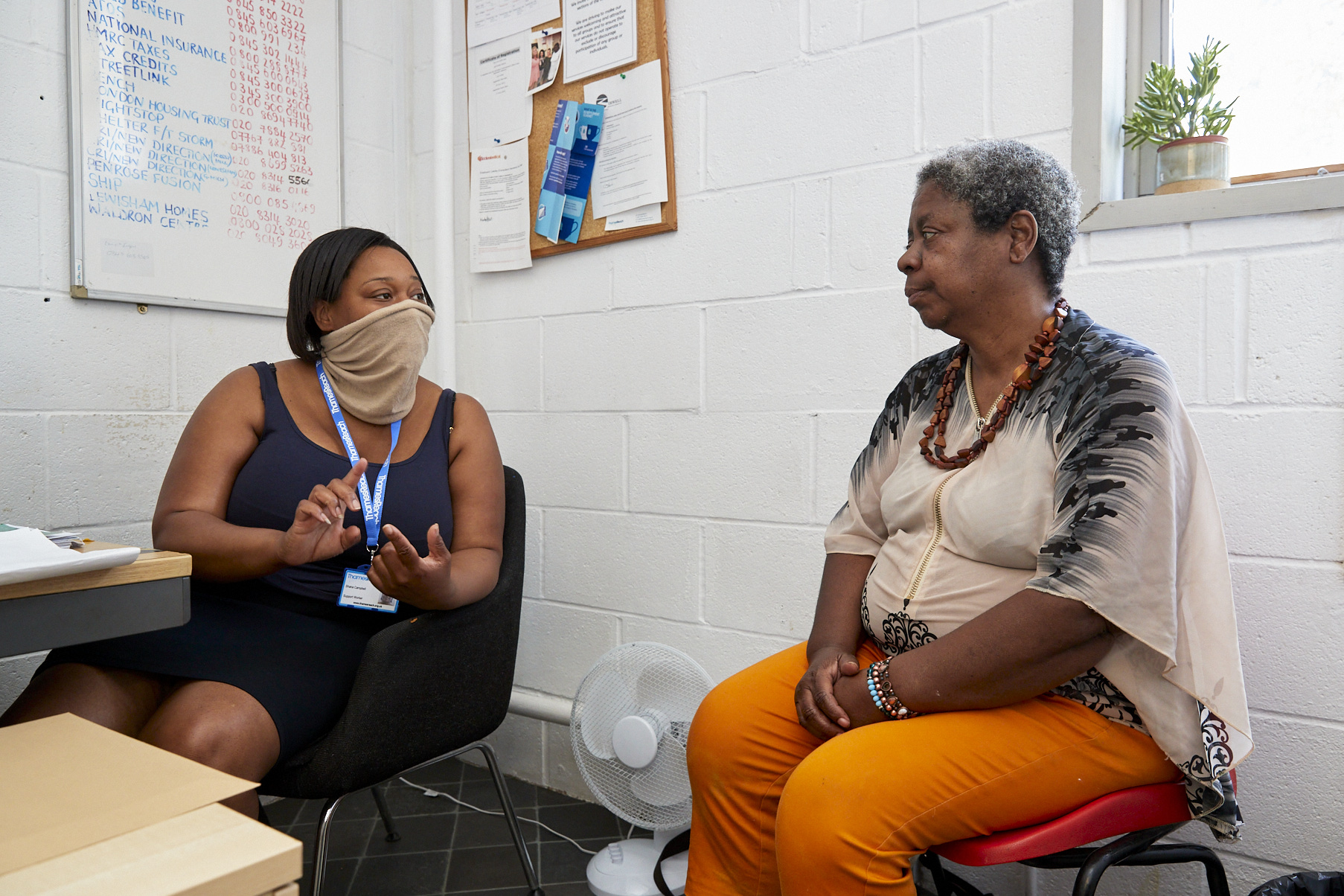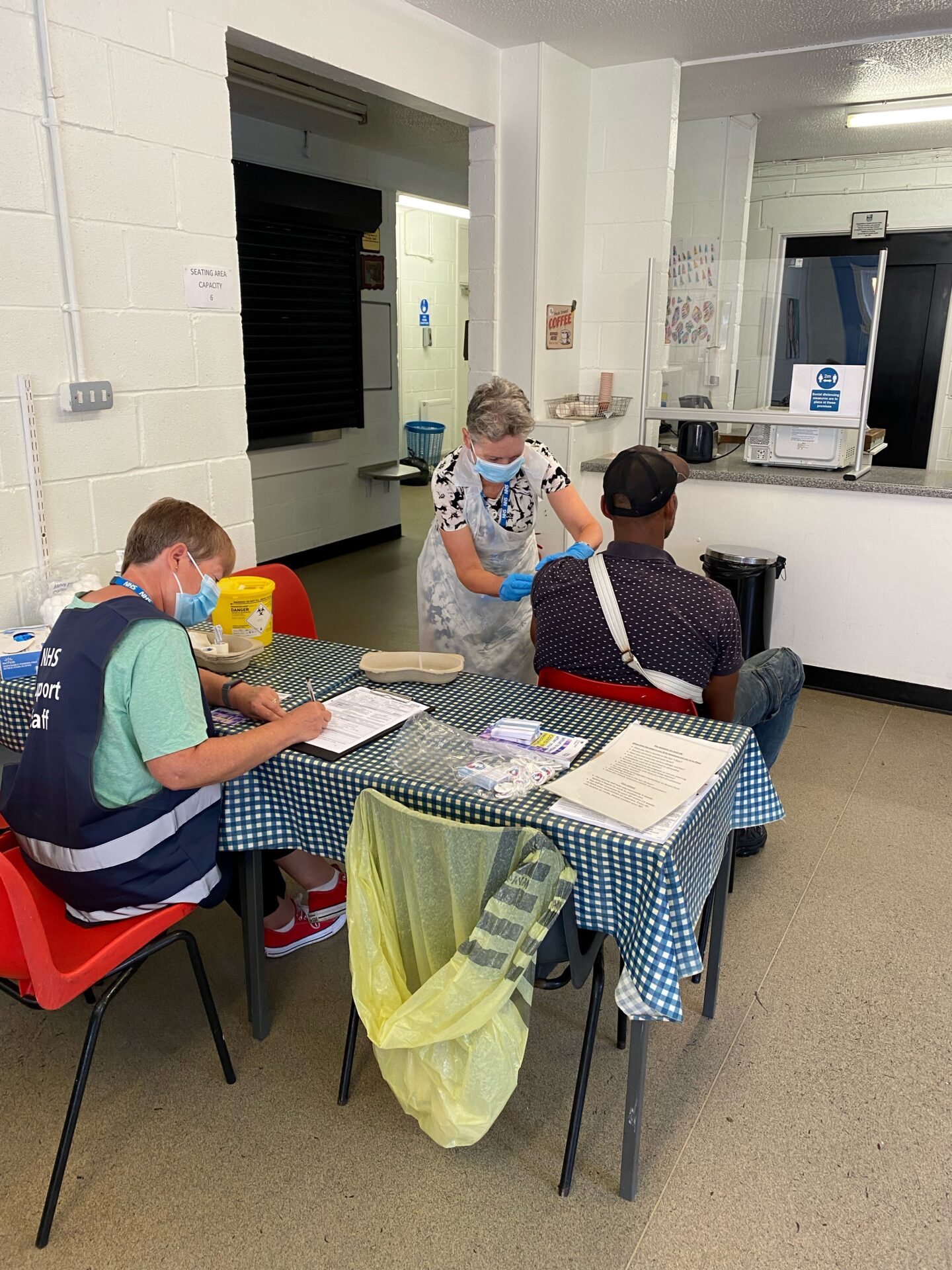Thames Reach bring homelessness prevention expertise to Lewisham
Thames Reach’s latest prevention service is focused on preventing homelessness in the borough of Lewisham

At the start of April, Thames Reach took over the service Lewisham IHASS (Intensive Housing Advice and floating Support Service) with a new contract. The team’s work will prevent homelessness in the borough with their person-centred approach, addressing the specific needs of the individual, whether this is mental health, tenancy sustainment or drug and alcohol support. We spoke with the service’s new lead manager, Michael, who introduced their work.
Can you give us an introduction to your new service?
We are a homelessness prevention service being commissioned by Lewisham council, with referrals being made from Lewisham Housing Solutions and Lewisham Adult Social Care. The idea is to support people into accommodation and make sure it’s sustainable and suitable for them; we are floating support, so meet people where they are as opposed to a day centre functionality. The team have been TUPED [transferred] over from One Housing, who held the contract before us, so it’s a really experienced team. They all know the services available in Lewisham, so we have the contacts we need to signpost for substance support, mental health, the job centre etc. We want to make sure we are a brief intervention service; when we receive referrals, we look to contact the individual within 24 hours and invite them into the service to meet and discuss their needs.
We are solutions-focused, and look to see how we can get people into employment or training, or education if that’s what they want to do. The ultimate goal is to get people as independent as possible in order to sustain their accommodation. Our work will also include mental health support and cessation of smoking if that’s something they need help with, promoting healthy living and wellbeing, widening their networks.
How does Lewisham IHASS work with other teams within Thames Reach?
We’ll be working closely with the Employment and Skills team to help people access training such as improving their English language skills. We also have close ties with the financial resilience worker, who is really important as she helps people with upskilling, getting back into work and managing their finances better. Our EUSS (European Union Settlement Scheme) worker will also work with people who are working on their Settled status, if they need assistance with their application. As I said, we are a brief intervention service, so want to work with people for a maximum of six months. If we can identify their needs quickly, we can work better as a homelessness prevention service.
If you are only working with people for a short period of time, does this imply that support needs are generally low?
Not necessarily, we have a wide range of people that we are working with. Some have come through the criminal justice system, one person we’re working with at the moment has just left supported accommodation, which wasn’t working for them, and they’ve also come off their [methadone] script. The people we are working with may have come from supported accommodation and they need that next step towards living independently, so we are here to listen to what people need for them to gain that independence. There will be people with low needs, but also those with medium needs, and complexities.
People being referred to our service might have presented to the council as being at risk of homelessness, perhaps they need advocacy to protect their tenancies, so they may not be sleeping rough but they are having issues with their tenancy, maybe they are in arrears.
Although the service was only taken over by Thames Reach at the start of April, what are the objectives for the coming months? How are you measuring your success?
As a brief intervention service, if we can support and signpost people effectively in a short amount of time, that is a success. Making sure we have systems in place to help people is enabling us to do this well; people come to us with a range of issues, and we need to know that we can help them quickly and effectively, to avoid it leading to homelessness. We work in a person-focused way, offering really good options to people and linking them in with services thanks to the partnerships we have in the community.
Thames Reach are committed to developing and running services that directly prevent homelessness. Please refer to our 2022-2025 Business Plan for more details on how we plan to implement this, based on ongoing successes. This includes “an assertive approach that aims to identify and work with people before problems lead to a housing breakdown” and developing “existing and new relationships with London local authorities” as projects such as Lewisham IHASS are usually commissioned this way. Lewisham IHASS is the latest service to follow this plan towards our vision of ending street homelessness, and we are pleased to be expanding our prevention service.


